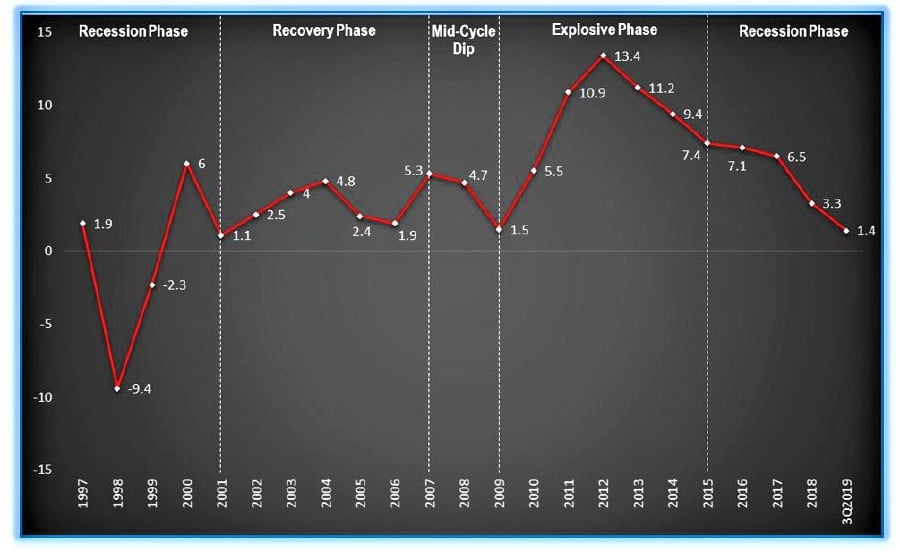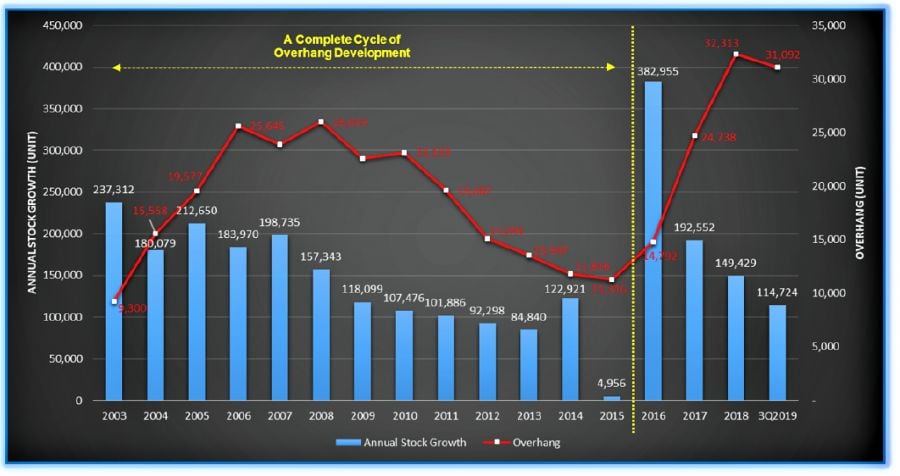The outbreak of the Covid-19 pandemic in the first quarter of 2020 continues to bring much uncertainty and more challenges in the property market.
The partial lockdown which started in the middle of March has contributed to a decline in the number of home seekers and sellers. Property listings have also narrowed.
During the various phases of the movement control order (MCO) up to June 9, processes like completing documentation and progress payments were put on hold as banks scaled down operations during the period.
Further, it can be expected that developers and builders will not be able to complete their projects or developments within the stipulated time frame as supply chains have been interrupted.
While it is still too early to predict the quantum and economic costs brought by Covid-19 on the property market, the transaction volume and value of the property will inevitably fall in the six months to June 30, this year.
The president of the Malaysian Institute of Estate Agents (MIEA) Lim Boon Ping said in an online ASEAN Real Estate Forum recently that “it is likely that house prices in Malaysia will drop for the first time since 1999.”

Over the last three decades, house prices suffered a decline between 1998 and 1999 due to the effects of the 1997 Asian Financial Crisis.
The property market entered into a recovery phase in 2001, and a few years later the mid-cycle dip took place during 2007-2009 because of the subprime mortgage crisis.
Since 2009 the country’s property market embarked on the explosive phase.
According to a report released by iProperty.com.my on the effects of the Covid-19 outbreak on Malaysia’s property landscape, property prices rose significantly from 2010 to 2015, with an increase as high as 13.4 per cent a year.
After 2015 there was another cycle of downturn led by the mismatch of house prices and affordability, property overhang, week consumer sentiment, difficulty in getting financing, and the weakened ringgit against other major currencies.
“One should realise that the main cause of today’s sluggish property market is attributed to the country’s imbalanced housing supply-demand system,” it said.

The property portal said, as shown in the chart above, there are 382,955 units of houses added into the existing inventory stock in 2016, which is the highest since 2003 (237,312).
Excessive supply of houses caused the drastic increase of overhangs in 2017 (24,738), and the residual impact is then carried forward to 2018.
Further intensifying the housing market is the annual stock growth in 2017 and 2018, which is recorded as high as 192,552 units and 149,429 units, respectively.
Historical data suggests that whenever there is an excessive supply of houses in a particular year, the number of overhangs will surely increase in the following year (depicted in 2003-2008).
The number of overhangs will only come down if there is a reduction of supply in the consecutive years (depicted in 2010-2013).
“In this sense, a period of 12 years (2003-2015) is required to restore the number of overhangs to its lowest level, which is from 9,300 units in 2003 to 11,316 units in 2015,” it said.
Covid-19 has derailed the recovery momentum
Knight Frank Malaysia managing director Sarkunan Subramaniam said the virus has without a doubt derailed the recovery momentum.
The delayed recovery momentum, coupled with severe disruptions to the economy leading to rising unemployment, potential buyers, and investors have delayed making big-ticket purchases, he said.

“During the first half of the year, the central areas of Kuala Lumpur saw fewer residential project launches and lower level of transactional activity. Still, against this backdrop, we observed active bookings of rightly positioned residential products of reputable developers in the city fringe and popular or upcoming suburbs,” he said.
Subramaniam said, in Malaysia where the homeownership rate remains relatively high, there are still genuine homebuyers in the market waiting for the right residential products.
He said the reintroduction of the home-ownership campaign (HOC) featuring stamp duty exemptions and the uplifting of the margin of financing limit for the third housing loan onwards for property valued at RM600,000 as well as real property gains tax (RPGT) exemption unveiled in the short-term economic recovery plan (Penjana) will help to stimulate the property market.
The central bank has also cut the overnight policy rate (OPR) thrice during the first half of the year with a further 25 basis points reduction to 1.75 per cent recently, to help speed economic recovery.
The lower monthly loan repayments coupled with the automatic loan moratorium for six months from April 1, will provide some financial relief to households amid the current crisis.
Further, Subramaniam said that with a lower monthly repayment sum, borrowers who failed to obtain a loan due to the restriction of one third debt service ratio (DSR) rule, may now have higher chances of securing financing.
He expects the residential market to see a slow uptick post-MCO, supported by various stimulus provided by the government, especially the reintroduction of the HOC featuring stamp duty exemptions and other incentives.
“Developers may reconsider their product positioning and marketing strategies including leveraging on the technologies and partnering with e-commerce platforms to improve their sales moving forward,” he said.
Knight Frank Sabah executive director Alexel Chen said in Kota Kinabalu, Sabah, it has been observed that some developers are now relooking into their products with a shift in focus to quality and well-priced residential products, both landed and high-rise at mature and growing residential areas.
